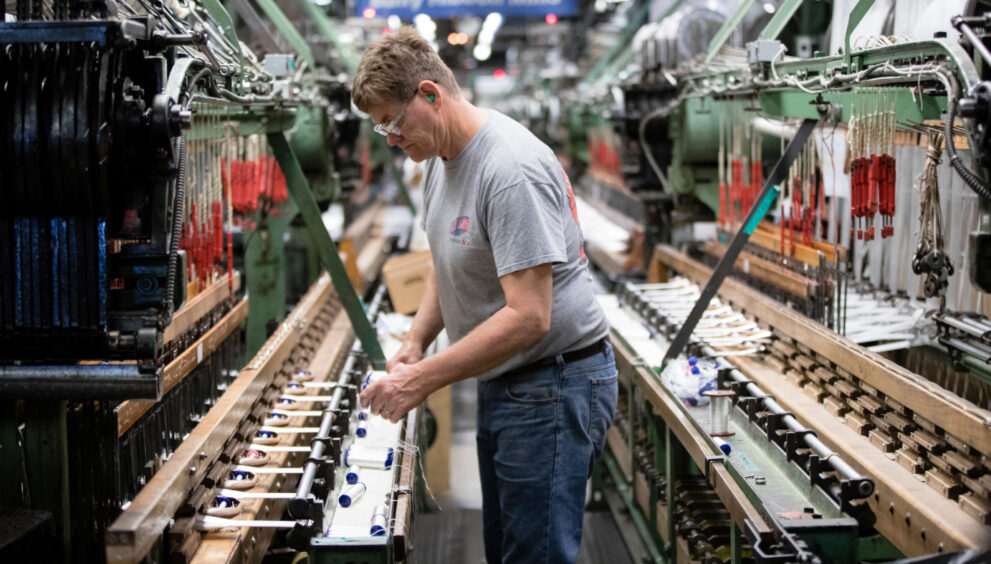The Shift from Manufacturing to Tech-Enabled Services: A Necessary Change

President Trump is confident that imposing tariffs will revive factories in the U.S., and supporters of manufacturing are eager for the future under his second-term agenda. However, if the aim is to ensure the long-term success of the national economy in the 21st century, simply reviving manufacturing will not be sufficient.
The decline of U.S. manufacturing jobs over the years can be attributed to various factors such as increased overseas production, policy changes, and technological advancements. In 1998, my hometown in upstate New York suffered greatly when the local Champion plant closed down and moved its manufacturing operations to Mexico.
Even on a global scale, the manufacturing sector is not what it used to be. The share of manufacturing in the gross domestic product is decreasing worldwide, including in countries like China and India, which were once considered the future powerhouses of the industry.
Factors like aging populations, changing consumer preferences, post-pandemic shifts, automation, and the emphasis on experiences over material goods have all contributed to diminishing manufacturing’s prominence as the sole solution to America’s employment challenges.
So, if manufacturing is not the ultimate answer many believe it to be, where should the focus shift? Perhaps it’s time for the U.S. to concentrate on industries and jobs that are currently propelling the global economy forward.
The services industry, especially those utilizing emerging technologies to cater to individuals and businesses, is expanding rapidly. With businesses heavily relying on various software platforms, numerous well-paying jobs are emerging in tech-enabled services spanning from finance and sales to human resources and supply chain management.
The advancement of AI is expected to drive further growth in this sector. Studies predict a significant increase in worldwide spending on artificial intelligence, fueling the tech services industry in the coming years.
Similar to manufacturing in the past century, tech-enabled services have the potential to offer lucrative employment opportunities to individuals without college degrees or recent graduates struggling to find suitable jobs in the evolving labor market.
However, the challenge faced by tech-enabled services is the outsourcing of jobs overseas due to the unavailability of low-cost skilled American workers. Sectors like application development, cybersecurity, cloud computing, and data management are losing approximately 300,000 jobs annually to offshoring.
Fortunately, there is an effective solution to the problem – the emergence of apprenticeship programs designed to train young Americans in technology and functional skills. These programs, which combine work experience with career pathways, can help build a strong foundation for the tech-enabled services sector, ensuring a skilled workforce for the future economy.
While the idea of tech-enabled services replacing manufacturing may seem improbable, these jobs, though less tangible, offer a wide range of services crucial in an ever-evolving economy. To stay ahead in the 21st century, a more nuanced strategy, emphasizing versatile and transferable skills, will be essential for American workers to thrive in tech-enabled services roles.
In conclusion, policymakers should consider investing in tech-enabled services as the modern-day replacement for manufacturing and focus on preparing the workforce to meet the demands of the future economy.






















































































































































































































































































































































































































































































































































































































































































































































































































































































































































































































































































































































































































































































































































































































































































































































































































































































































































































































































































































































































































































































































































































































































































































































































































































































































































































































































































































































